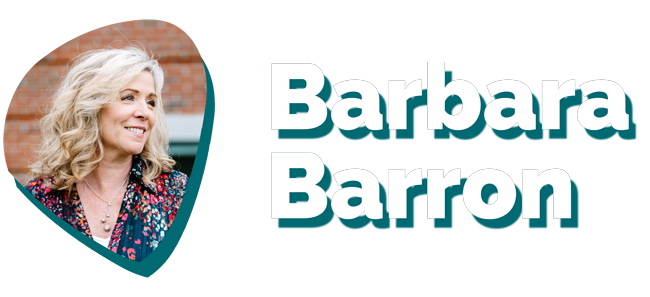by Barbara Barron | Posted November 11th, 2020
Independent schools around the country are finally embracing the important work of diversity, equity, and inclusion. And they’re doing it in all aspects of school life: from governance, to hiring, to disciplinary procedures, to curriculum choices.
Those of us in Advancement are also called to consider how our development programs can reflect these core values; how we can view our work through the same critical lens.

Specifically: what assumptions are we making in our work? How can we raise the vital funds we need for our school programs and not be “elite?” How might our profession find ways to lead in this area while still meeting our ambitious goals?
I have been struggling with this complex topic and how best to advise my clients. So, as I often do when I feel out of my depth, I sought advice. Fortunately, I had access to someone who is truly leading in this work. Her name is Tesha McCord Poe, and she’s a seasoned advancement officer. She’s also an independent school graduate and now, a current parent. Currently she serves as Director of Advancement at Girls’ Middle School in Palo Alto CA and, for our purposes here, CEO of her new firm called Joy-Raising. (More on that cool name in a moment.)
I shared with Tesha my confusion: how, in over twenty years of raising significant money for myriad schools – many with richly diverse student bodies made possible through significant budgetary commitments to financial aid – was I so flummoxed by this mandate?
How was I to think about what feels like an impossible balance between raising money and being inclusive?
I confessed that I can count on the fingers of one hand the times I have had the opportunity to sit with a family of color and ask for a leadership gift.
Her answer: stop thinking about this as two sides of a seesaw that needs to be balanced. Open the lens. Reframe the conversation.
I needed some stories to help me see this. Here are a few from our conversation.
Let’s take the ubiquitous coffee that schools host for new families early in the school year. Typically it’s served in the school’s library at 8:30 am, just after drop-off. Why? Well, it’s very convenient for us, right? (Are you cringing already?)
Tesha reported that, naturally, this year, that meeting at her school needed to be held remotely. As they went around the zoom squares, and each parent spoke of their child’s early experience at the school, one mom reported out – all in Spanish. And it was obvious that she was moving around quite a bit within her box on the screen. When Tesha asked her, in Spanish, what she was doing, she reported she was setting up her food truck.
Lightbulb.
In ordinary times, there’s no way this mom would have been able to attend the meeting and share her daughter’s story. They would have missed her voice. We’d do well for our communities to ask ourselves: who is missing from our events because we hold them in the morning? Or at the end of the school day? Or at a fancy home?
The work gets a little tougher as we think of the emphasis on being “donor centered”. How might we be unintentionally playing to the biases, known or unknown, of our donors. Gets tricky here.
Tesha’s comment reminded me of a conversation I had this summer with a client. She had successfully set up a very important meeting, the first with a key donor and her new Head of School. Her inclination was to stay only for the first part of the meeting and then leave, so these two men could talk. What was she doing, even with the best of intentions? She was taking herself out of the conversation and I urged her not to. (I admit I have done that myself over the years – thinking I was striving to make the donor — always a man – feel most comfortable!)
Tesha concurs: We all need to not do that – as women (which most of us are in this particular profession) and certainly not as a Black woman, as Tesha is. But if we decide that we are going to take ourselves out, we need to do so consciously. We need to name it for what it is. Courageously unpack it. Therein lies a challenge. In this work, there’s always something we may need to be prepared to give up. And someone else’s comfort is sometimes that thing.
Have you subscribed to the newsletter yet? It only takes a minute.
Finally, as a sector, Tesha urges us to look at our systems. Where might we be permitting donors to influence our programs in ways that run counter to our mission and to the wellbeing of the community?
Very specifically, are our gift acceptance policies explicit that we will not accept gifts that are not in accordance with our values? Some cases, Tesha points out, are clear, like a school refusing to hold a casino night because gambling runs counter to their values. But the places where the policy and our practices are less aligned are often more subtle. Action item: suggest that your development committee review this guiding document through this lens? And then, important for transparency, report the needed revisions to the community.
We’re still going to need to raise money from the families that have the resources to share with our organizations. But the language we use matters. If we can talk about making gifts that are “meaningful” to each family, we’re moving in the right direction. Tesha speaks of her work to secure each family’s “best gift”. I think that’s a beautiful notion.
And beauty is what Tesha is seeking. The beauty that comes from real growth, achieved through vulnerability. (We ask nothing less of our students: vulnerability and growth. Why not of ourselves?)
And now, about that great company name: Joy-Raising.
First, Joy is Tesha’s middle name. But that’s just a nice synchronicity. Her goal is nothing less than the start of a movement — one that makes us all better. Our organizations. Our individual selves. Joy, then, is the feeling she — and we? –we are striving for.
Don’t know about you, but I never needed that more than I do right now.
Eager to hear your ideas about this important topic. I don’t believe our work will ever be “done”. We must always be improving.
About the Author
Barbara Barron is one of the most respected and highly sought-after independent advancement professionals in the country, having worked with dozens of schools in every corner of the United States. She has raised over $20 million for schools where she served as the Director of Development. Barbara is a “New York Times” bestselling author, speaker, and presenter who currently advises dozens of schools in various capacities. She is considered a thought leader in the world of advancement, with her writing widely shared by professionals in development offices worldwide. She can be reached via email at [email protected]
About Joy-Raising
Joy-Raising is led by founder and CEO Tesha McCord Poe, an attorney, turned law teacher, turned nonprofit leader who has led fundraising efforts totalling more than $50 million. Joy-Raising partners with organizations to address their most critical fundraising and diversity/equity and inclusion (DEI) needs. Whether it’s helping to launch a capital campaign or confronting unexamined bias in hiring practices, Joy-Raising knows how to work with leaders to move forward and bring change. “We are unafraid to engage in the most challenging discussions about philanthropy, money, race, class, and community in order to help your organization accomplish its best.” Tesha can be reached via email at [email protected]







